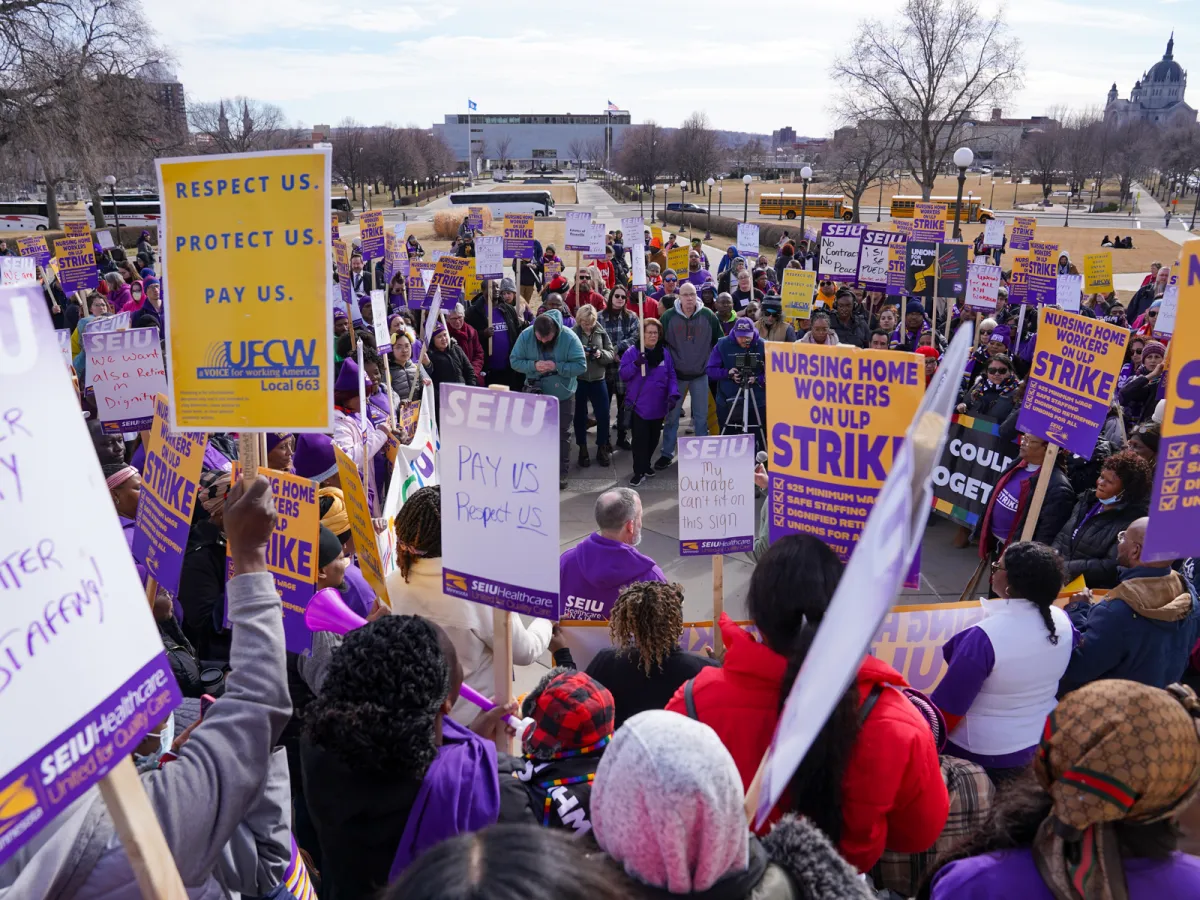An attempt to set minimum compensation rates for rideshare drivers is once again moving forward at Minneapolis City Hall — sparking renewed threats by rideshare giants Uber and Lyft to exit the market.
Members of the city’s Business, Housing & Zoning Committee voted 5-1 on Tuesday to forward the proposed ordinance to the full council following testimony by more than 30 members of two competing rideshare groups.
The ordinance, authored by Council Members Robin Wonsley, Jason Chavez and Jamal Osman, would pay drivers at least $1.40 per mile and $0.51 per minute for the time transporting a rider, or $5, whichever is greater.
It would also set minimum compensation for drivers transporting a rider in a wheelchair-accessible vehicle at $1.81 per mile and $0.51 per minute, or $5, whichever is greater.
related sTORIES
It’s the most generous of three options analyzed by a City Auditor’s Office report, which attempted to answer the question of which model would get rideshare drivers, considered independent contractors, up to at least the Minneapolis minimum wage of $15 per hour.
“If these companies are already paying $15 if not more, this ordinance should make no difference to them once this passes,” Wonsley said.
The minimum compensation rates only apply to the portion of the ride that occurs within Minneapolis city limits.
Council Member Michael Rainville was the sole vote against the ordinance. Last August, a similar ordinance written by Wonsley was vetoed by Mayor Jacob Frey.
Wonsley said any concerns from council members about another Frey veto could be overcome by nine votes.
In a statement after the committee vote, Frey said he supported “more than doubling” the rate of pay for drivers but didn’t want to push rideshare services to leave Minneapolis, since that would hurt those who depend on the income and passengers who rely on the service.
“I don’t care about Uber and Lyft’s bottom line. What I do care about is access to jobs for rideshare employees and access to a critical service for riders,” Frey said. “It is our job as policymakers to consider the impact of our actions — not make policy decisions that could ultimately hurt the same people we are trying to support.”
Before the most recent version of the ordinance, Frey proposed a compensation model that would’ve paid drivers a minimum rate of $1.17 per mile and $0.34 per minute for the time transporting a rider.
Both Uber and Lyft have made previous threats to reduce or cease operations should the law change. The companies repeated those threats ahead of Tuesday’s meeting.
“Should the bill become law, Lyft would be forced to cease operations in Minneapolis and possibly the rest of the state when it takes effect on April 1,” Lyft said in an emailed statement.
Uber said it had “numerous” concerns with the proposed ordinance and could be forced to cease operations as well.
An Uber spokesperson also said the company looked forward to working with the Legislature on getting a bill passed this year. Last year, a bill passed by both the Minnesota House and the Senate was vetoed by Gov. Tim Walz.
The issue was then forwarded to a state task force, which after six months of meetings, reached a consensus on pay transparency, protections for drivers facing deactivation of their accounts, and a minimum compensation of $5 per ride.
The key topic the task force couldn’t agree on was drivers’ wages after it failed to make a unanimous recommendation regarding driver compensation.

Both the Minnesota Uber/Lyft Drivers Association (MULDA) and MULDA Members, a splinter group, had drivers at Tuesday’s meeting to support the latest Minneapolis proposal.
“We are here today collectively speaking in one voice, on that we need something done and what needs to be done and why it should be done is simple,” Yusuf Haji of MULDA Members said. “We want equity and inclusion.”
Drivers from both groups spoke out and shared receipts from recent rides showing what they got paid versus how much the rider paid.
One driver, Matthew McGlory with MULDA said in the seven years he’s driven for both apps, he’s made nearly 20,000 rides. He said drivers like him drive in heavy snow and they also drive long distances.
“You all know that Uber and Lyft are finessing us, and they’re finding creative strategic ways to take money out of our pockets,” McGlory said.
Also among the people who spoke on Tuesday was state Senator Omar Fateh, DFL-Minneapolis, who emphasized that a bill at the state level involving rideshare drivers shouldn’t be seen as opposition to a citywide ordinance, but rather a partnership.
He said the state failed drivers last year but Minneapolis could bring about change.
“We have a saying at the State Capitol: “When the federal government gets it wrong then it’s up to us to make it right.” But now, when the state gets it wrong, we’re looking to you [Minneapolis City Council] to get it right,” Omar said.
The proposed ordinance is set for a March 7 hearing where the full council will take a vote, Wonsley said.






